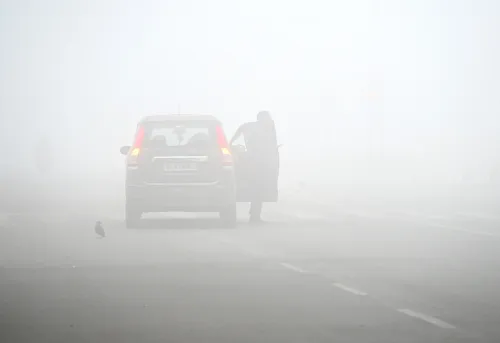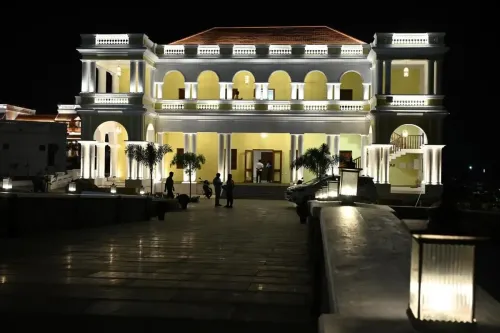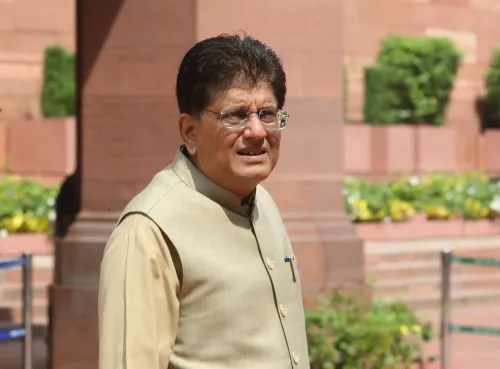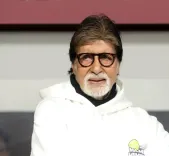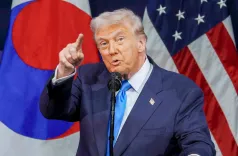Mamata Banerjee's Aspirations for Leadership in the INDIA Coalition: Is an Exit Strategy in Progress?
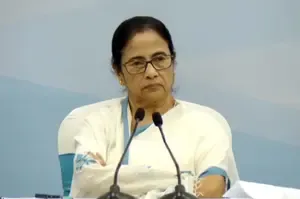
New Delhi, Dec 7 (NationPress) Following the creation of the opposition ‘INDIA’ coalition, tensions have become apparent among its member parties. Just as the alliance was beginning to take form, JD(U) leader and Bihar Chief Minister Nitish Kumar distanced himself and rejoined the NDA as the 2024 general elections approached.
Disagreements over seat-sharing within the INDIA coalition intensified in the lead-up to the Lok Sabha elections. In West Bengal, Mamata Banerjee refused to allocate seats to the Congress and Left parties like CPI-M and CPI. In Delhi, the Aam Aadmi Party (AAP) distributed seats to Congress, whereas in Punjab, AAP and Congress failed to agree on seat-sharing. In Uttar Pradesh, the Samajwadi Party (SP) and in Bihar, the Rashtriya Janata Dal (RJD) divided seats without consultation, resulting in Congress receiving less than anticipated.
As the NDA government secured a return in this year’s Lok Sabha elections, intra-coalition conflicts persisted. The following state Assembly elections revealed signs of division within the alliance. In various states, regional parties declined to offer seats to Congress, and in states like Haryana, efforts to create a coalition between Congress, AAP, and SP fell short.
AAP even declared its intention to run independently in the Delhi Assembly elections. In the by-elections in Uttar Pradesh, Congress had to accept the seats designated to them by the Samajwadi Party (SP).
Now, inquiries are being made about the leadership of the INDIA coalition, especially following Congress' performance under Rahul Gandhi in the Maharashtra and Haryana elections. Leaders from Mamata Banerjee's TMC, after the Maharashtra outcomes, and AAP leaders post-Haryana results, have suggested that Congress engage in some self-assessment.
While opposition parties united to exclude the BJP from power, aspirations for leadership have emerged. As a national party, Congress was anticipated to take the lead, with Rahul Gandhi as the alliance's face. However, behind closed doors, many coalition members are attributing the alliance's failures to Rahul Gandhi’s leadership.
In light of Congress' inability to defeat the BJP in numerous elections, West Bengal Chief Minister Mamata Banerjee expressed her ambition to lead the INDIA coalition in an interview on Friday, a remark that quickly garnered substantial political interest.
Numerous alliance leaders expressed their support for her and proposed initiating discussions on the issue. Shiv Sena (UBT) leader Sanjay Raut even mentioned his plans to visit Mamata in Kolkata to address the matter, while Shiv Sena (UBT) MP Priyanka Chaturvedi also endorsed her statement.
Mamata went a step further, asserting that she had established the INDIA coalition, a declaration that has some basis. Although it was Nitish Kumar who originally united Congress and other parties, Mamata’s assertion carries weight, given that Nitish Kumar is no longer part of the alliance. She stated, “I formed the INDIA alliance. Now it’s up to those leading it to manage it. If they cannot, what can I do?”
Mamata further indicated that if granted leadership, she could guarantee the alliance operates effectively, a sentiment that was echoed by the Samajwadi Party (SP). SP leaders like Abu Azmi have even expressed a desire for Akhilesh Yadav to contemplate leaving the INDIA coalition, with SP leader Uday Pratap also endorsing Mamata’s leadership capabilities.
Previously, CPI had expressed dissatisfaction with Congress’ management of the alliance. This discontent stems from Congress’ diminishing influence within the opposition, particularly as smaller parties have surpassed it in recent elections.
Mamata's recent remarks are being interpreted by many political analysts as a potential exit strategy from the coalition. Since Congress is unlikely to accept Mamata as its leader, she might opt to exit, similar to Nitish Kumar's decision.
Mamata's party also seems to be at odds with Congress in Parliament. While Congress tends to disrupt parliamentary activities through protests, TMC leaders prefer engaging in debates.
It appears Mamata has recognized that Congress is more inclined to contest elections with regional allies in states where it is weak, such as Jammu and Kashmir, Maharashtra, and Jharkhand. However, in states where Congress is strong, like Madhya Pradesh, Rajasthan, Chhattisgarh, Karnataka, Andhra Pradesh, Telangana, Haryana, and Himachal Pradesh, it has hesitated to involve its allies. Consequently, Mamata seems to have devised a secure exit strategy ahead of the Bengal elections, which may also provide a potential exit route for other parties within the INDIA coalition.


